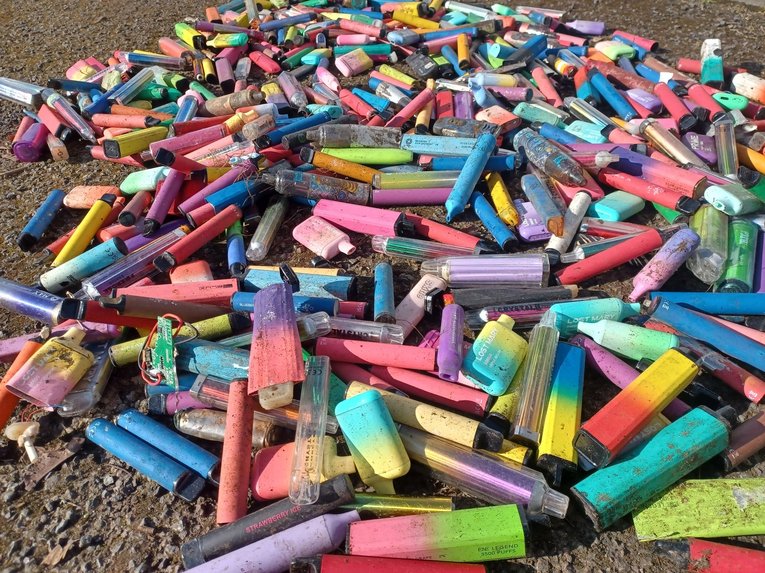
Positive ocean news: June edition
From rare porpoise sightings to coral reef restoration and steps to tackle plastic pollution, we've rounded up some of this month's good news stories for our seas.
New study highlights economic benefits of seabed offshore Marine Protected Areas

Credit: Jeremy Stafford-Deitsch
According to new analysis by the Marine Conservation Society, banning bottom trawling ban in the UK’s seabed offshore Marine Protected Areas (MPAs) could be worth over three billion pounds to the UK economy.
If protected from all damaging activities, such as bottom trawling, seabed offshore MPAs could provide valuable services to society, such as storing carbon, removing pollutants, nutrient cycling and recreational opportunities. The charity found that the net benefit of this could amount to between £2.57 billion and £3.5 billion over a 20-year period.
Costs of doing so, including loss of earnings by fishers, and the setting up and enforcement of the ban, are surpassed after 2-4 years, with potentially billions of pounds worth of benefits achieved in the long-term, the analysis shows.
Read more on the Business Green Post website
180 nations agree first steps in treaty to tackle pollution
Over half of nations present agreed that harmful polymers, chemicals and plastic products should be phased out or banned, and many countries called for action on plastic production as well as pollution.
The majority also agreed that the treaty should be enforced globally by law, rather than on a voluntary basis.
The next round of talks will take place later year before a final meeting is held in 2024.
Read more on the Guardian website
Disentangled humpback whale freed after eight hours
UK Government launches consultation to amend sewage reduction plan
The consultation was announced following data and analysis recently shared by the Marine Conservation Society, one of the co-claimants of the legal case.
The consultation, which the public can respond to, will take place until the 24th of July. It will explore whether the Plan should be expanded to include coastal and estuarine waters, which was one of the Marine Conservation Society’s key concerns about the original Plan.
Read more here
Ex-poachers become conservationists and help restore coral reefs they damaged

Credit: Ralf Schlegel
Former poachers, who previously bombed and poisoned coral reefs in the Spermonde Islands of Indonesia to catch fish, are now working to restore them.
Having since become conservationists, they are working alongside scientist and university professor Syafyudin Yusuf, who has spent 20 years working to save the reefs.
In 2009, only 2% of coral reefs in the Spermonde Islands were in good condition, having been destroyed by illegal fishing methods. Now, almost five acres have been restored through the team’s efforts.
Former poacher Muhammad Arif said, “We thought he would actually destroy the corals and our lives, but he was the one who educated us that corals are essential for fish life," he said.
"So [Yusuf] gave us knowledge and our welfare has increased by maintaining and caring for coral reefs."
Read the full article on the Good News Network website
Sightings of vaquita calves raises hope for world’s most endangered marine mammal
Vaquita porpoises are the world’s rarest – and most endangered - marine mammal, with only 10-13 of the creatures recorded – down from 600 in 1997 and 200 in 2008.
Although it’s illegal to capture vaquitas, they are at risk from gillnets (which are also illegal) used to catch totoaba fish. The Mexican government has taken measures to prevent this by dropping cement blocks in the protected area to snag gillnets, but fishers still enter the area daily.
The fact that scientists on the expedition recorded a similar number of vaquita sightings in 2021, including at least one calf, has raised hopes of their survival.
Read more on the EcoWatch website
Disposable vapes added to ‘do not bring’ list at Glastonbury
New project aims to restore 120 miles of Hawaiian reefs
Ākoʻakoʻa will bring together the power of science and culture to restore and conserve 120 miles of coral reefs off the west of the Big Island of Hawaii, which have been declining for the past 50 years.
Pollution, overfishing and the impacts of climate change have degraded the corals in the region, but as well as restoring the corals, the programme aims to make them more resilient to help protect them against these pressures.
The programme will also focus on research, with a new research and coral propagation facility to be built on the Big Island. This will be used to study corals and cultivate new ones to be used in the restoration.
Although Ākoʻakoʻa will be driven by science and research, it will incorporate the traditional knowledge of the local community, with elders stressing the importance of the relationship between land and sea.
Read more on the Mongabay website






